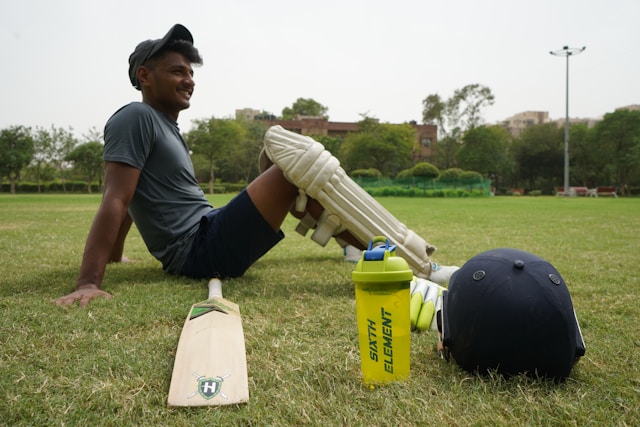Are you an athlete wanting to perfect your performance under pressure? Whether you’re gearing up for a significant competition or just seeking to improve your home workout routine, mastering the art of performing well under stressful conditions is crucial. This blog aims to provide athletes, fitness enthusiasts, and beginners practical insights into how to prepare mentally and physically for competitive sports conditions.
The Importance of Mental Preparation
The mind is a powerful tool in sports. Mental preparation often separates good athletes from great ones. Visualization techniques can significantly enhance your performance. Imagine yourself succeeding in your sport, and visualize overcoming obstacles. This mental rehearsal prepares your brain for actual competition and helps reduce anxiety.
Setting Realistic Goals
Setting achievable goals is essential for progress. Break down your goals into smaller, manageable tasks. This approach makes the overall objective less daunting and provides a clear path for improvement. Celebrate small successes as they come—they are stepping stones toward your ultimate goal.
Building Physical Endurance
Physical endurance is key in competitive sports. A well-rounded fitness routine that includes cardiovascular exercises, strength training, and flexibility exercises will enhance your overall performance. Consistency is vital; ensure you stick to your workout schedule to build and maintain endurance.
Adapting to Different Environmental Conditions
Sports often occur in various environmental settings, requiring athletes to adapt quickly. Practice in conditions similar to those of your upcoming competition. For instance, if you’ll compete in high humidity, try to simulate those conditions during your training sessions. This preparation helps your body adjust and reduces the shock of unfamiliar environments.
Nutritional Strategies for Peak Performance
Your diet plays a significant role in your athletic performance. A balanced diet rich in carbohydrates, proteins, and fats optimizes energy levels. Whey protein is an excellent choice for athletes, as it aids muscle recovery and promotes muscle growth. Hydration is equally important—dehydration can severely impact performance. Consider consulting a sports nutritionist for personalized advice.
Importance of Rest and Recovery
Rest and recovery are as essential as training. Overworking your body without adequate rest can lead to injuries and decreased performance. Incorporate rest days into your training schedule and ensure you get enough sleep each night. Recovery techniques like stretching, massage, and ice baths can also aid in muscle recovery.
Developing a Pre-Competition Routine
A consistent pre-competition routine can help calm your nerves and prepare you mentally and physically. This routine might include light stretching, listening to music, or practicing visualization techniques. Find what works best for you and stick to it before each competition.
Building a Support System
Having a strong support system can make a significant difference. Surround yourself with positive influences, including coaches, teammates, and supportive friends and family. They can offer encouragement, advice, and a shoulder to lean on during challenging times.
Practicing Under Simulated Pressure
Simulating competition conditions during practice can help you become accustomed to performing under pressure. For example, if you’re a golfer, using a golf simulator at home setup can mimic the pressures of an actual game. This practice helps build confidence and improves performance when it matters most.
Staying Focused During Competition
Maintaining focus during a competition is crucial. Develop techniques to keep your mind centered on the task at hand. Deep breathing exercises, positive self-talk, and staying in the moment can help maintain focus, even under pressure.
Learning from Past Performances
Reflecting on past performances is an excellent way to identify areas for improvement. Analyze what went well and what didn’t after each competition or practice session. Use this information to adjust your training and strategies moving forward.
Performing well under pressure requires mental and physical preparation. By incorporating these strategies into your training routine, you’ll be better equipped to handle the demands of competitive sports conditions. Remember to set realistic goals, build endurance, adapt to different environments, maintain a balanced diet, and prioritize rest and recovery. Developing a pre-competition routine, building a support system, simulating pressure conditions, staying focused, and learning from past performances will also contribute to your success.
For more personalized advice and to take your training to the next level, consider booking a session with a professional coach or sports psychologist. They can offer tailored strategies to help you excel in your chosen sport and achieve your full potential.


